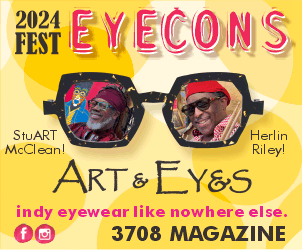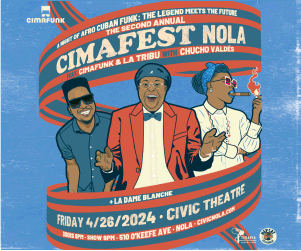Call it the deep breath before the plunge. As Hurray for the Riff Raff prepares to dive into the major label pool with ATO (home of Alabama Shakes), the alt-country “band” (basically singer/songwriter Alynda Lee Segarra with various side folks) takes a quiet moment out first with My Dearest Darkest Neighbor. Possibly her last indie effort, this largely acoustic collection revels in the low-fi: the handclaps, the finger-picking, the slight distortion (notably on Joni Mitchell’s “River”), the sense of calm and ease.
Segarra’s delicate, haunting voice is front and center, hovering over the spare instrumentals (largely her own acoustic guitar) and making the most of the space. The songs themselves, mostly covers, fit this muted treatment: focusing on longing and loss, from the outlaw traditional ballad “Black Jack Davey” through John Lennon’s “Jealous Guy” and Lucinda Williams’ “People Talkin’,” with some Leadbelly and Hank Williams thrown in. “Cuckoo,” one of two Segarra originals, fits neatly with these downcast blues, subtly driving home its point with its haunting, repetitive structure. The other, “Angel Ballad,” channels the Gillian Welch cut it is based on (“Ruination Day”), and there’s one other Welch song on the disc (“My Morphine”). That connection makes sense: these songs may sound soft, but there’s not a trace of sentimentality in their darkness. The entire album is a revelation—honest and stark—but Mitchell’s “River” is a standout, heartbreaking with a fragility that the lack of bandwidth only accentuates. If this is what Segarra does on her own, one can only hope that ATO knows better than to mess with her.





